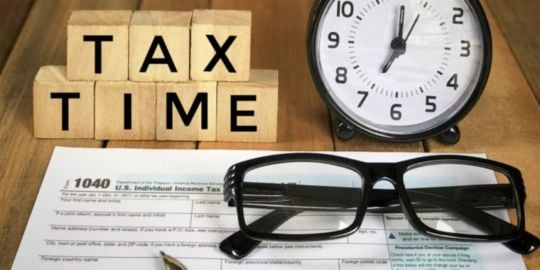I note that one of the requirements to obtaining a 'Retirement Visa' in Thailand is:>
"To get a retirement visa in Thailand, you must be at least 50 years old, have no criminal record in your home country and in Thailand"
... does anybody know if that means a DUI conviction from around 40 yrs ago negates eligibility???
Thailand Retirement Visa
no,it doesn,t you will be fine, even usa lets you in if you have 1 drink drive conviction
Agree with first response. Additionally, if applying for retirement visa from inside Thailand - vice outside of Thailand - neither a police report or health form is required. I have lived in Thailand 4.5 years on the retirement visa.
be aware some Thai banks will not open a bank account unless you have a retirement visa or a work visa!!! SCB is one..tried yesterday and was refused.. Hmmm need a bank account for a retirement visa and can not open a bank account (even joint with a Thai national) without a retirement visa!
Hi so would you suggest applying for the retirement visa whilst in thailand?
Thanks
A
It's possible, try another branch/bank. Joint accounts are not accepted by immigration offices.
This is our plan if it helps:
Get a 60 day visa in the US.
Extend it for 30 days more in Thailand.
Set up the bank accounts and let them mature for the 2 months required. (B800,000 each).
Apply for the retirement visa after 2 months time with the money in the accounts.
I had no problem opening a bank account with Bangkok Bank while visiting here on a tourist visa. I needed the account to transfer funds.
It almost seems like a catch-22 sometimes with the need to have a bank account but many banks requiring a work permit or retirement visa to open an account, doesn't it? All I can suggest is to keep trying and you will prevail. Bank managers seem to have a significant amount of discretion, even with government rules and bank policy suggesting they do not.
My first Thai bank account was opened 15 years ago on nothing but a 30 day permission to stay in lieu of a visa and it was easy. It has gotten a bit harder these days but it is still do-able, you just have to hit the right bank officer with your best smile on your face and a positive attitude. I have been told that explaining that you intend to transfer 800,000 baht into their bank in the first breath and without stopping to give them a chance to say no will help. But take no graciously if that is the answer and wish them well on the way out. Someone else down the street or across town will be happy to have your money.
You really don't need to pay for a 60 day visa if you are from a country that get's a 30 day visa on arrival. After arriving and with at least 21 days before 30 day visa expires, you can apply for the 90 day non immigrant visa. You can then apply for the retirement visa. With the 90 day non immigrant visa you should be able to open a bank account.
If you want to make the process easy contact https://www.tilalegal.com
They have the connections. They are visa lawyers in Thailand. You have to pay, but they will get it done with out all the hassle from immigration.
Forex5x wrote:This is our plan if it helps:
Get a 60 day visa in the US.
Extend it for 30 days more in Thailand.
Set up the bank accounts and let them mature for the 2 months required. (B800,000 each).
Apply for the retirement visa after 2 months time with the money in the accounts.
Do you need to get the retirement visa activated by reentering Thailand after it is obtained?
Entering on a 60 day tourist visa and extending 30 days is a waste of time and money to apply for a retirement visa.
You have to have the 90 day non immigrant visa before you can apply for a retirement visa.
If you are from a country that receives a 30 day tourist visa on arrival, there is no need to apply and pay for the 60 day tourist visa because you can apply for the 90 day non immigration visa at least 21 days before your 30 day visa on arrival expires. After receiving the 90 day non immigrant visa, you can then set up your bank account and apply for the retirement visa while staying in Thailand.
You don't have to leave and re-enter to activate the retirement visa. But, if you don't get a multiple entry retirement visa, you will have to apply for a re-entry permit each time you leave if you want to maintain the current retirement visa. If you leave without a multiple entry or don't apply for a re-entry permit, your current retirement visa will be void and you will have to start the application process again.
Is it possible to get an Extension for a retirement Visa ?
To my knowledge, no.
You will have to go through the entire retirement visa application process again.
We entered with visas on arrival, then applied for non-immigrant visas to be eventually extended to retirement visas. We lived in CM for three years but moved to the north coast of Peru over two years ago because we got tired of all the visa regulations, 90-day reports, annual trips to immigration, other expat related paperwork and the fact that it is next to impossible to obtain permanent residency. Not to mention the smoke! Here the retirement visa took two months to process and it is good for life. And the financial requirement is only $1000 a month with no minimum age. No more trips to immigration. In less than a year, we can apply for permanent residency if we so desire.
rfah wrote:I note that one of the requirements to obtaining a 'Retirement Visa' in Thailand is:>
"To get a retirement visa in Thailand, you must be at least 50 years old, have no criminal record in your home country and in Thailand"
... does anybody know if that means a DUI conviction from around 40 yrs ago negates eligibility???
I recommend that you pay a visit to the nearest Thai Immigration location, for Retirement Visa information... 
However, keep in mind, Immigration officials are bureaucrats. Thus, do not provide them with personal information, they have no need to know, e.g., your DUI conviction from 40 years ago... 
rfah wrote:I note that one of the requirements to obtaining a 'Retirement Visa' in Thailand is:>
"To get a retirement visa in Thailand, you must be at least 50 years old, have no criminal record in your home country and in Thailand"
... does anybody know if that means a DUI conviction from around 40 yrs ago negates eligibility???
Applicant: A Singaporean usually lives in Singapore
Working in Malaysia: 2005-2010
Does the applicant need to present a Malaysia's certificate of no criminal record when he makes the application of retirement visa? 
deleted
Income Affidavit Update beginning January 1, 2019
From US Embassy Thailand Website
FACT SHEET: EVIDENCE OF INCOME FOR LONG-STAY VISAS
Beginning January 1, 2019, the U.S. Embassy in Bangkok and the U.S. Consulate General in Chiang Mai will no longer provide the income affidavit and will not notarize previous versions of the income affidavit.
Fact: Applicants for the Kingdom of Thailand's nonimmigrant category “O,” “O-A,” or “O-X” (long stay) visa can find information regarding visa requirements on the following Royal Thai Government websites (see below): Kingdom of Thailand Ministry of Foreign Affairs, Royal Thai Embassy (Washington, D.C.), and Royal Thai Immigration Bureau.
Fact: The Kingdom of Thailand requires minimum income or savings standards as one of the criteria for applying for the nonimmigrant category “O,” “O-A,” or “O-X” (long stay) visa for retirees and non-Thais married to Thai nationals.
Fact: The U.S. Embassy and Consulate General can neither verify nor guarantee the income of U.S. citizens applying for visas to Thailand. Personal incomes often come from several disparate sources, both private and governmental.
Fact: The U.S. Embassy and Consulate General do not guarantee the contents of any notarized document. U.S. consular officers have never certified or verified the income claimed on the income affidavits. Their primary role is to verify the identity of the person signing a document.
Fact: The Royal Thai government is aware that the income affidavit provided by the U.S. Embassy Bangkok and Consulate General Chiang Mai is not actual evidence of income.
Fact: The U.S. Embassy and Consulate General are not required by Thai law to provide an income affidavit template for U.S. citizens to use for Thai visa applications. The periodic acceptance of the affidavit in lieu of actual income evidence has been a matter of informal practice rather than regulation.
Fact: U.S. citizens must work directly with the Royal Thai Government to determine if they meet Thai visa requirements. The U.S. Embassy and Consulate General do not have a role in securing a Thai visa for U.S. citizens.
Fact: The U.S. Embassy and Consulate General will work closely with Thai immigration officials during the transition period to minimize any confusion.
From US Embassy Website FAQ:
CESSATION OF INCOME AFFIDAVITS
Discontinue Income Affidavit January 1, 2019
Direct Deposit SSA To Thai Bank Beginning First Quarter 2019
FAQ
Is it true the Embassy will no longer complete income affidavits for U.S. citizens?
Yes. Beginning January 1, 2019, the U.S. Embassy in Bangkok and U.S. Consulate General in Chiang Mai will no longer provide the income affidavit form and will not notarize previous versions of the form.
Why is the U.S. Embassy making this decision?
The Royal Thai Government requires foreigners to meet a minimum income threshold to obtain nonimmigrant “O,” “O-A,” or “O-X” long-term stay visas. The self-sworn affidavits notarized at the Embassy and Consulate General do not meet the Thai
requirement to certify the income of U.S. citizens. In addition, U.S. Citizens have often expressed concern at the expense and burden of travel necessary to obtain the income affidavit at the U.S. Embassy or Consulate.
I want to renew my visa in 2019. How can I verify my income for the application?
Thailand provides information about visa application and extension requirements on the Royal Thai Embassy in Washington, D.C., and the Thai Immigration Bureau websites. These include minimum savings and income amounts and types of evidence required.
As of October 26, 2018, U.S. citizens can verify they meet the income requirements for retiree visas directly with Royal Thai Immigration by providing a local bank statement indicating a minimum deposit of 800,000 Thai Baht or evidence of having an income of at least 65,000 Thai Baht per month. Applicants should refer to the above-referenced websites for specifics regarding the timing and conditions associated with these deposits.
We will continue to notarize income affidavit forms through the end of 2018. Thai Immigration Bureau officials confirmed to us that they will support early visa renewals for U.S. citizens during the transition period. The income affidavits are currently valid
for six months.
I receive U.S. Government benefits. Can the U.S. Embassy or Consulate General verify this income?
We cannot verify or guarantee income, regardless of source.
The U.S. Mission in Thailand has been working with the Social Security Administration (SSA) regarding deposits directly into Thai banks. The SSA recently notified us that it has approved Thailand to participate in the International Direct Deposit (IDD) program. This will make proof of income easier. IDD will be implemented beginning in the first quarter of 2019. More information about IDD can be found at: https://www.ssa.gov/pubs/EN-05-10137.pdf
What will happen to those who cannot demonstrate sufficient income?
Sufficient finances are an eligibility requirement of the Royal Thai Government for the issuance of a long-stay retirement or family-based visa. Individuals who do not meet the income and financial thresholds do not qualify for these visas in Thailand.
U.S. citizens should thoroughly understand the Royal Thai Government's visa requirements to ensure eligibility. We cannot intervene on U.S. citizens' behalf.
What are the U.S. Embassy and Consulate doing to ease the transition?
We recently met with the new Commissioner of Immigration and his staff to discuss the change, and both the Embassy and Consulate General will work closely with regional immigration offices during the transition period to address any concerns.
That should not be a problem if your visa is issued at a Thai Consulate in S.E. Asia, Laos for example.
also they may not ask for it when applying from your own country, I doubt it would be showing, but you could go to any police station and have them check to see if it is on record, there may be a fee for this.
Question:- How come only 4 embassies are stopping issuing income letters, whereas
Others, eg. Germany, are still doing them.









